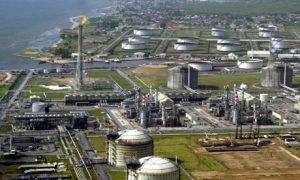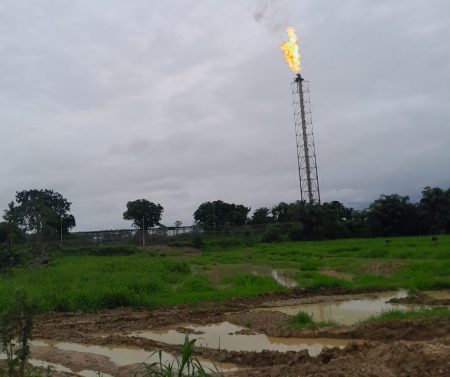…OPEC+ meets Thursday to review production pact

Chuks Isiwu, with agency reports
Lagos — Nigeria witnessed the biggest crude oil production decline among the Organization of the Petroleum Exporting Countries, OPEC, members in October, a month in which the group’s overall output rose above the previous month’s figures.
Nigeria’s output was down by 70,000 barrels per day, bpd, following a disruption after recovery in September.
A Royal Dutch Shell venture, the Shell Petroleum Development Company of Nigeria, SPDC, declared force majeure on loadings of Bonny Light crude after a pipeline shut down.
OPEC pumped 27.50 million barrels per day in October, according to a survey cited by Reuters – a rise of 190,000 bpd from the previous month but below the 254,000 increase permitted under the supply deal.
The second largest decline among OPEC producers was in Libya, one of the countries exempt from OPEC supply curbs, due to a pipeline leak, the survey showed.
Output in Iran, which has raised exports since the fourth quarter despite U.S. sanctions, showed little change in October. Talks to revive its 2015 nuclear deal with world powers, which would allow a larger export recovery, are set to resume.
Venezuelan output increased slightly, the survey found, helped by the arrival of Iranian condensate to help Caracas convert its extra heavy oil into exportable crude.
The Reuters survey aims to track supply to the market and is based on shipping data provided by external sources, Refinitiv Eikon flows data, information from tanker trackers such as Petro-Logistics and Kpler, as well as information provided by sources at oil companies, OPEC and consultants.
The survey reported that, overall, involuntary outages in some smaller producers offset higher supplies from Saudi Arabia and Iraq.
OPEC states and their allies, a grouping known as OPEC+, are relaxing output cuts made in 2020 as demand recovers from the coronavirus pandemic, although some members are not delivering the full boosts promised due to a lack of capacity.
The OPEC+ alliance is also wary of pumping too much oil in case of renewed setbacks in the battle against COVID-19.
“OPEC+ will likely stay behind the demand curve, rather than risk jumping ahead and getting burned,” said Rystad Energy analyst Louise Dickson.
The supply restraint has helped support oil prices, which are trading near $85 a barrel and close to a three-year high, prompting the United States and other consumers to urge producers to supply more crude.
The OPEC+ agreement allowed for a 400,000 bpd production increase in October from all members, of which about 254,000 bpd is shared by the 10 OPEC members covered by the deal, OPEC figures seen by Reuters show.
With output undershooting the planned increase last month, OPEC’s compliance with its pledged cuts increased to 118% in October the survey found, from 114% a month earlier.
OPEC+ meets on Thursday to review its policy and is expected to reconfirm its plans for monthly increases.
The biggest rises in October came from OPEC’s top two producers, Saudi Arabia and Iraq, which both boosted output largely as promised according to the agreement.
Kuwait, the United Arab Emirates and Algeria also made increases as called for by their higher October quotas. Angolan exports bucked their declining trend and rose in October.
Output declined or did not increase in Republic of Congo, Equatorial Guinea and Gabon, the survey found, owing to a lack of capacity to produce more.
Follow us on twitter



